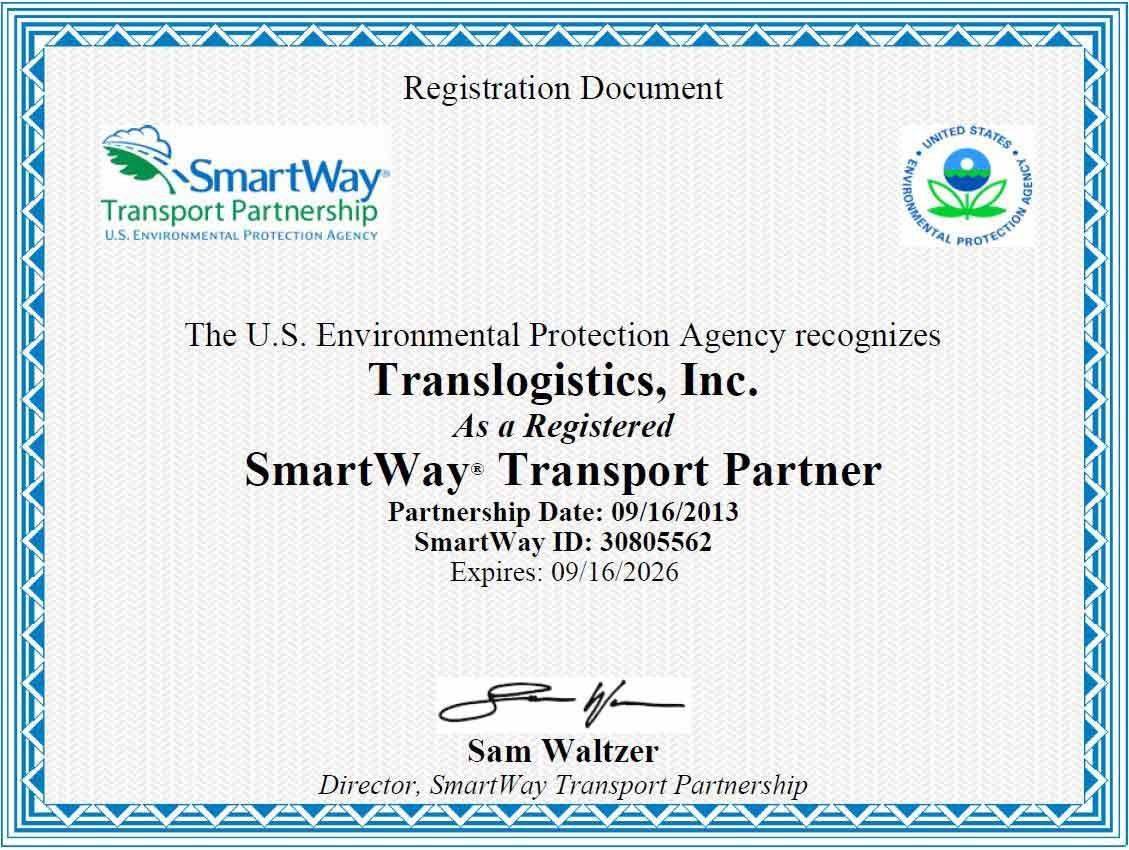Understanding Less than Truckload Shipping: LTL Jargon
Joseph McDevitt • July 13, 2023
Shippers Guide to LTL Jargon
There are many terms thrown around unique to LTL shipping, and this guide is meant to provide clarity to shippers when communicating LTL needs.
- FAK – stands for “Freight All Kinds” – this is a negotiation tactic used by the Logistics Department and any other Logistics Manager to group freight classes under a lower freight class – the FAK also lowers the probability that a shipment will get “reclassed” out of a negotiated rate level – for example, Logistics could negotiate an FAK 100 for classes 110-150 – in this example, a shipment with a freight class of 125 would move at the class 100 hundredweight (CWT) rate for a specific zip to zip lane
- Tariff – Each individual LTL company has their own schedule of rates (aka tariff) that provides a hundredweight (CWT) rate for every possible combination of origin zip code to destination zip code with every possible freight class and every possible weight break within those zip combinations – needless to say this results in millions of possible combinations
- Discount Level – Once the overall rate is determined for a shipment given the origin zip code, destination zip code, weight and freight class, hardly any shipper in the country will ever pay the full rate – the carrier will negotiate discounts with all of their customers based on various factors – in today’s LTL industry, it is not unusual to see discounts between 70% and 90% off of the base rate tariffs
- CzarLite Tariff – As we see in the retail industry, companies will advertise “70% off original ticketed price” to attract customers, but they don’t tell you that the original ticketed price may have been 20% higher than it should have been in the first place – trucking companies have also learned to play this game a long time ago – they inflate their base rates to a point where they can offer more attractive discounts, such as the 90% discounts mentioned above – this may easily become deceiving – for example, say YRC Freight is offering us a base rate on a shipment of $400 and they are offering an 80% discount to arrive at a discounted rate of $80 – then consider that Estes approaches and states that they can offer us an 85% discount – however, they neglect to inform us that the base rate on the same shipment is $550 – their discounted rate with this “better” discount would become $82.50 and hence more costly than YRC Freight regardless of their discount level
- In order to avoid this issue, TLI operates off of a standard tariff base called CzarLite – since all TLI carriers utilize this tariff, their base rates are the same and it becomes easy to determine a carrier’s competitiveness based solely on their discount levels
- Minimum Charge - The absolute minimum charge that a carrier will charge for an individual shipment – usually $50 or higher – this is used to cover the carrier’s fixed costs for handling a shipment even if it is very low weight
- Deficit Weight – As mentioned previously, hundredweight (CWT) rates decrease at weight breaks as weight increases – the carrier will utilize deficit weight pricing by rating a shipment at a higher weight with a lower hundredweight (CWT) rate if it is beneficial to the shipper – this rule is generally put in place when a weight gets above 80% of the next weight break – Example:
- A shipment weighs 1,800 pounds with a CWT rate of $10.00 for a freight charge of $180.00
- The 2,000 pound weight break has a CWT rate of $8.00
- The carrier will declare the shipment as 2,000 pounds to improve the shipper’s pricing as:
- 1,800 pounds @ $8.00 per CWT = $144.00
- 200 pound deficit weight @ $8.00 per CWT = $16.00
- The deficit weight rule would result in a $160.00 total charge and a savings of $20.00 for the shipper
- Transit Time – The number of business days that a carrier advertises it will take to deliver a shipment from origin to destination
- Guaranteed Service - Note that transit days are NOT guaranteed by LTL companies – Guaranteed service may be requested at a surcharge – most LTL companies will meet advertised transit times between 90 and 98% of the time
- Blind Shipment Charge – A charge assessed by a carrier for processing a shipment where either the shipper is not allowed to know where a shipment is destined to, or a receiver is not allowed to know where a shipment has originated from – this is generally a flat charge per occurrence
- Canadian Processing Fee – A charge assessed by a carrier for processing shipments going from or to Canada – this charge can be assessed as either a flat rate per border crossing or as a rate per hundredweight (CWT) per border crossing
- COD (Cash On Delivery) Charge – A charge assessed for requesting the carrier to collect the product invoice from the consignee – this charge is generally assessed as a percentage of the invoice value collected with a minimum charge
- COD Cancellation / Correction Charge – A charge assessed for requesting the carrier to cancel or make a change to a COD – this charge is generally assessed as a flat rate
- Construction Site / Limited Access Delivery – A charge assessed for requesting a carrier to execute a delivery or pick-up at a construction site, or a limited access area, which is defined as locations such as prisons, schools, piers and military bases, etc. – this charge is generally assessed as a flat rate
- Fuel Surcharge – A fuel charge assessed to help the carrier recoup excess costs for high fuel costs – this charge is assessed as a percentage of the freight bill
- Guaranteed Date Delivery – A charge assessed when the carrier is instructed to guarantee delivery on a certain day or time – this charge is generally assessed as a percentage of the freight bill
- Hazardous Material Charge – A charge assessed when the carrier is requested to handle Hazardous Materials – this charge is generally assessed as a flat rate
- High Cost Delivery / Pick-up Surcharge – A charge assessed when a carrier is requested to make a delivery or a pick-up in an area that is costly for the carrier to reach such as areas with high tolls or heavy traffic congestion – examples would be the Florida Keys, New York City or Washington, DC – this charge is generally assessed as either a flat rate or as a rate per hundredweight (CWT) with minimum charges
- Inside Delivery / Pick-up Surcharge – A charge assessed when the carrier is requested to make a delivery or pick-up inside a building – this charge is generally assessed as a rate per hundredweight (CWT) with a minimum amount – this is also generally an additional charge if the carrier has to deliver on higher floors in a building
- Lift Gate Charge – A liftgate charge assessed when a carrier is requested to supply a hydraulic lift gate at pick-up or delivery – this charge is generally assessed as a flat rate
- Notify Charge – A charge assessed when a carrier is requested to notify a consignee that a shipment is arriving – TLI generally has this charge waived and the carrier provides us this service for no charge when it is necessary
- Overdimension / Overlength Charge – A charge assessed when a single piece of a shipment is over a certain length or dimension – each TLI contracted LTL carrier has different specifications of what they consider overdimension or overlength – this charge is generally assessed as a flat rate
- Reconsignment Charge – A charge assessed when a carrier is requested to deliver a shipment to a location different from the consignee on the original Bill of Lading – this charge is generally assessed as a flat rate as well as any additional charges that may be incurred from making this change, especially if the carrier needs to reroute the shipment
- Redelivery Charge – A charge assessed when a carrier attempts to make a delivery to a consignee, but is unable to deliver due to no fault of the carrier – this charge is generally assessed as a rate per hundredweight (CWT) with a minimum charge
- Residential Delivery Charge – A charge assessed when a carrier is requested to make a delivery or pick-up at a residential address – this charge is generally assessed as either a flat rate or as a rate per hundredweight (CWT) with a minimum charge
- Reweigh / Inspection Charge – A charge assessed when a carrier needs to reweigh or inspect a shipment – TLI generally has this charge waived with our carriers – however, TLI as well as our customers may be responsible for additional charges if the weight or freight class is determined to be inaccurate as a result of the reweigh or inspection – we would merely not be responsible for the charge of the carrier performing the actual reweigh or inspection
- Single Shipment Charge – A charge assessed when a carrier only picks up one shipment on a single day from a certain location – this charge is generally assessed as a flat rate and is normally waived for TLI
- Sort and Segregate Charge – A charge assessed when a carrier is asked to sort and segregate shipments in one of their distribution facilities – this charge is generally assessed by the higher of a rate per piece or a rate per hundredweight (CWT) with a minimum charge
- Storage Charge – A charge assessed when a carrier is requested to store a customer’s freight at one of their facilities – this charge is generally assessed as a rate per hundredweight (CWT) with a minimum flat rate per day
If you are interested in learning more about transportation, check out our TLI University resources.
TLI Insights
Get the latest logistics insights and tips from TLI's award-winning team. Stay ahead in transportation planning.
Questions? Email us at marketing@shiptli.com




